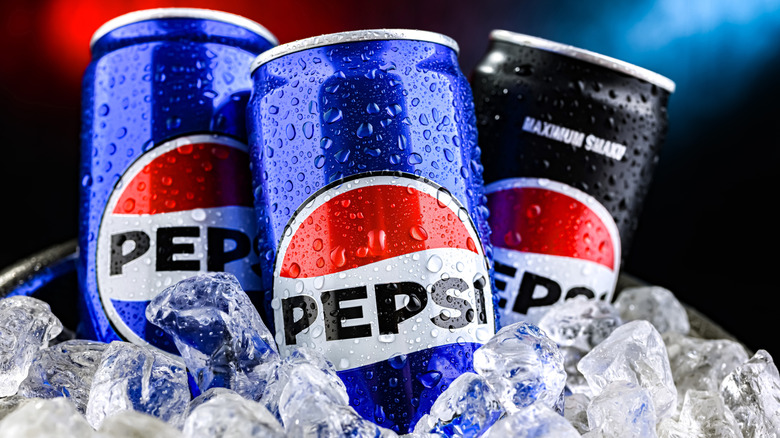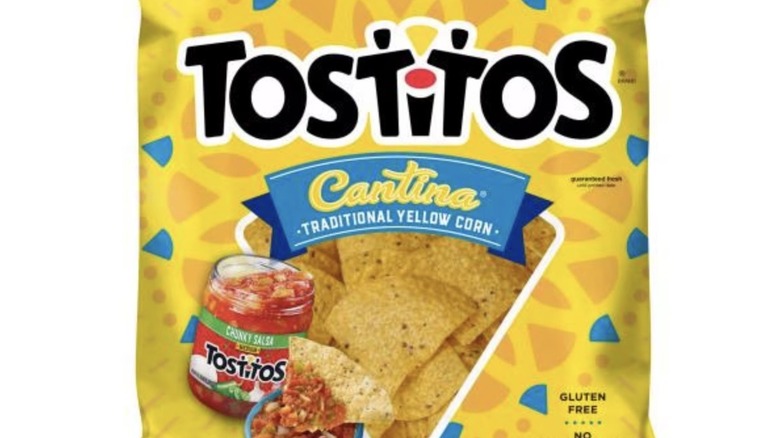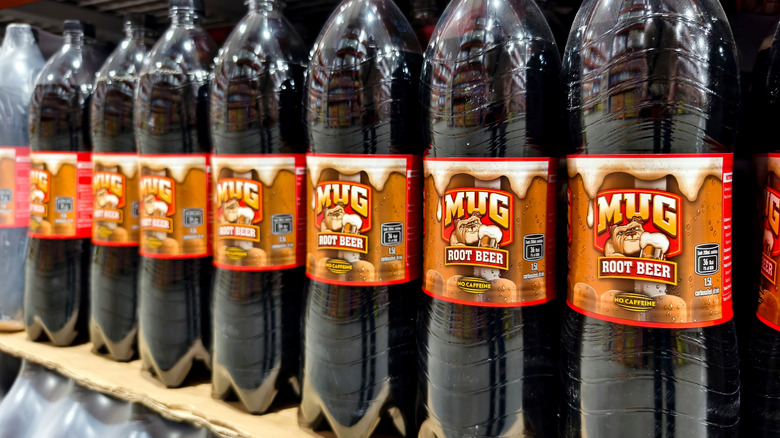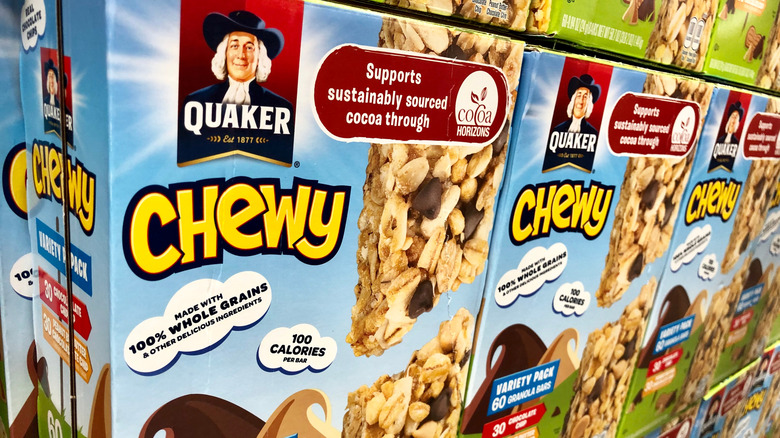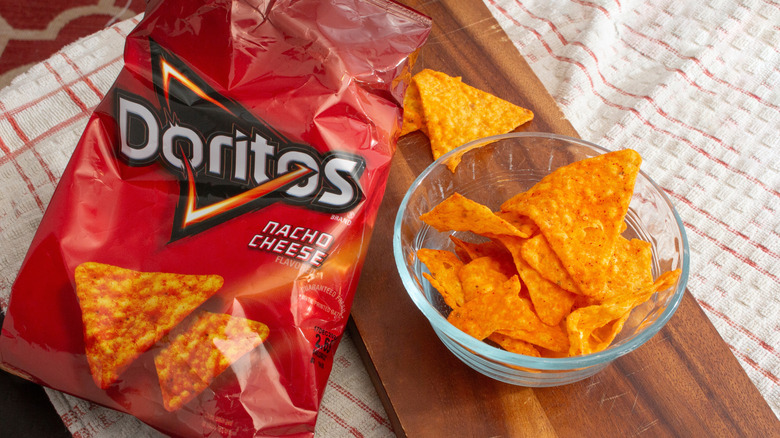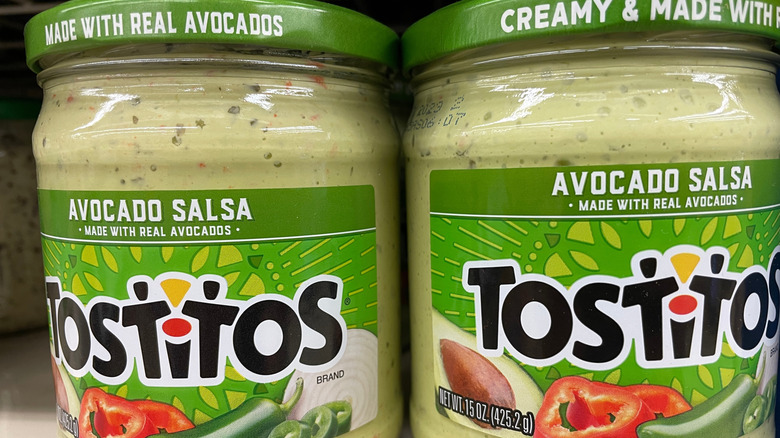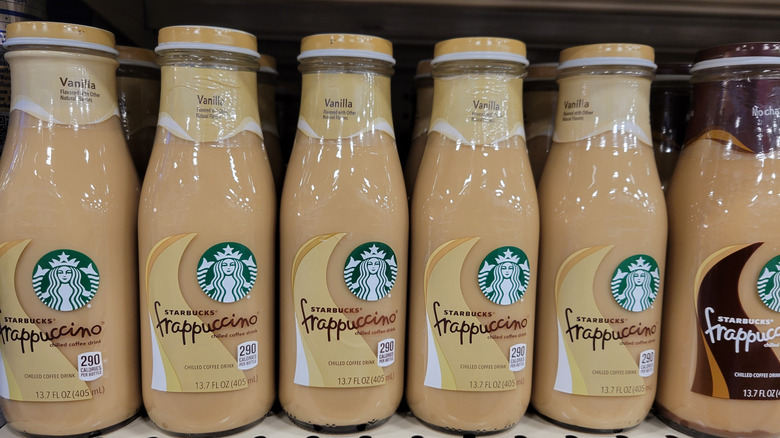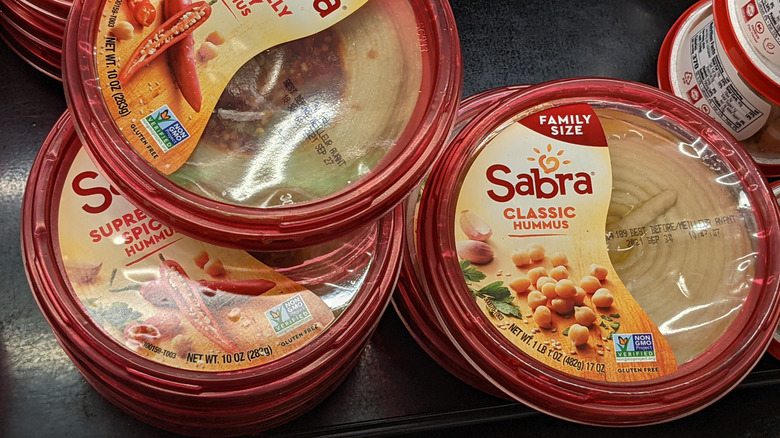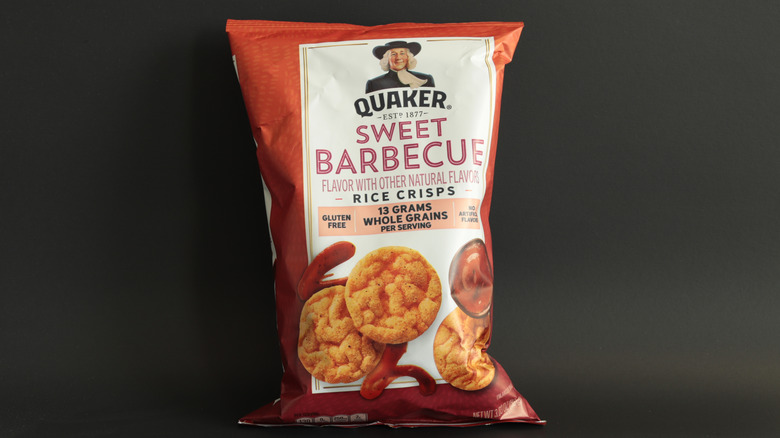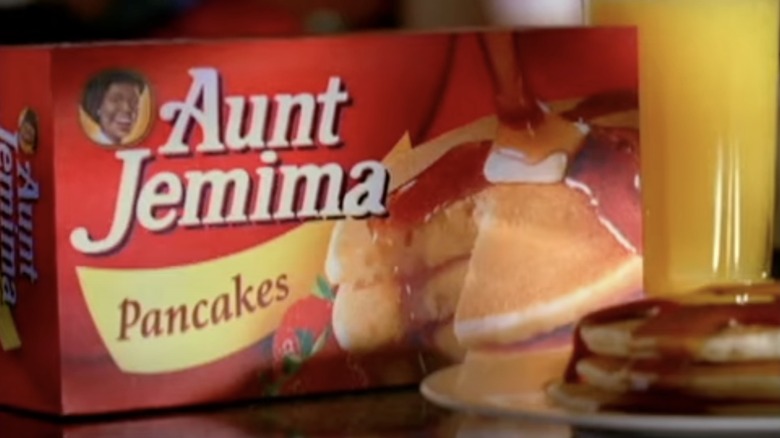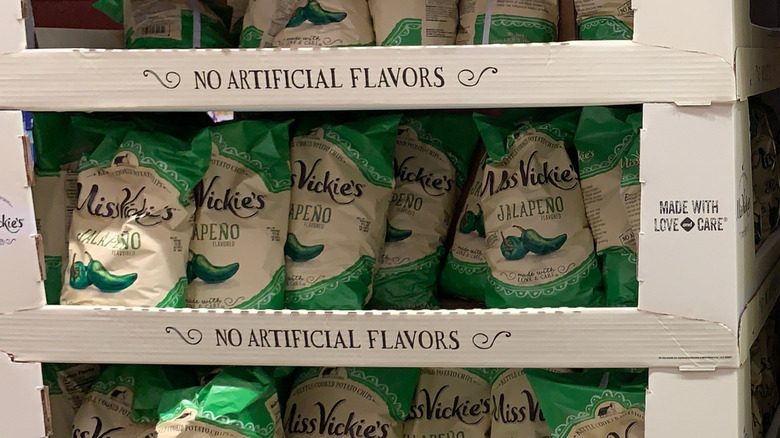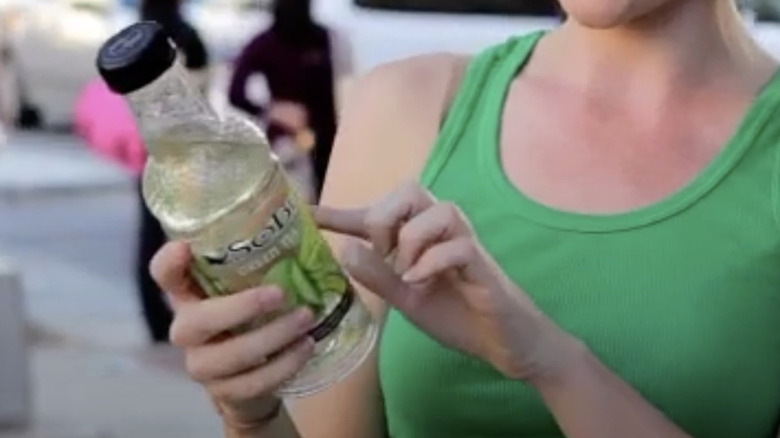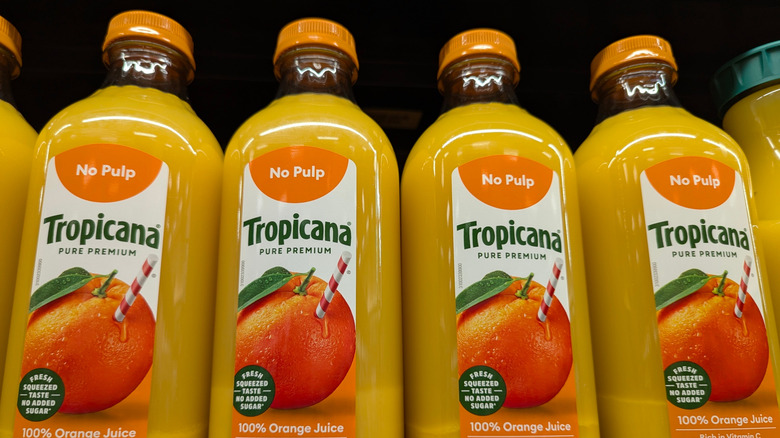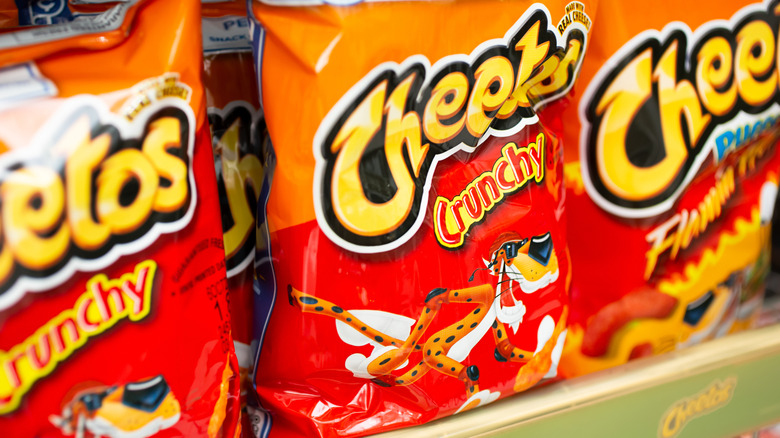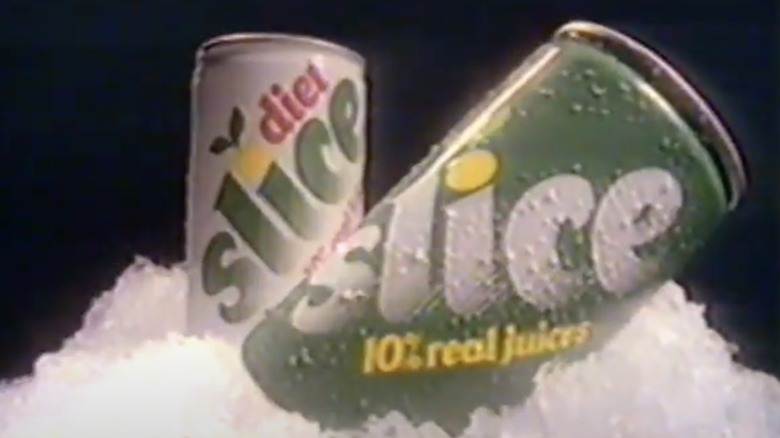Massive PepsiCo Recalls That Swept Across The US
In addition to being a leading producer of soft drinks around the world, PepsiCo's stable of brands has expanded over the years to include a wide array of beverages, snacks, and other food stuffs. From electrolyte-filled Gatorade, to ready-to-drink Starbucks Frappuccinos, and even frozen breakfast foods, the immense scale and diversity brings with it ample opportunities for production to go awry or for it to face unfortunate circumstances that have led to nation-sweeping recalls.
Though every decision to pull goods off store shelves may not stem from a considerable threat to the public, each recall is taken seriously as PepsiCo brands have a record of responding out of an abundance of caution. Over the years, allergy risks, bacterial contamination concerns, and even a threat of poison have stirred manufacturers to nix chips by the caseload and dispose of enough soda to fill a small fleet worth of tanker trucks. Read on to uncover how even the slightest suspicion of a misstep on the production line is enough to begin again from scratch.
A tortilla chip recall warned of serious consequences (2025)
The increasing regularity of encountering someone with a food allergy has brought with it a growing understanding and willingness for businesses large and small to provide accommodations. While restaurants often offer menu substitutions — provided some etiquette is shown — and manufactures include warnings on product labels accompanying the ingredients list, there is no recourse for someone with an allergen when the package fails to denote the presence of something that might do them harm.
So it was in March 2025 when PepsiCo subsidiary Frito-Lay issued a recall on 13 ounce bags of Tostitos Cantina Traditional Yellow Corn Tortilla Chips when the packages were shipped to 13 states containing the wrong product. Instead of the advertised snack, the bags had been filled accidentally with nacho cheese tortilla chips. As a result, they posed a risk for anyone who suffers from a milk allergy. Due to the severity of the risk, the Food and Drug Administration (FDA) elevated the classification of the recall in April 2025 to Class I, meaning there was a significant chance for severe health consequences or death for someone with a milk allergy to consume the Tostitos in question.
After a diabetic danger, even more sodas were shipped out mislabeled (2024)
The character of Ferris Bueller famously said, "Life moves pretty fast," and that reality played out for PepsiCo in March 2024 when less than two weeks had transpired before it had to issue another recall over a mislabeling incident. Shipped to Arkansas, Louisiana, Mississippi, New Mexico, Oklahoma, and Texas, a March 22 recall impacted more than 3,000 gallons of Mug Root Beer when it was determined that the 12-pack cases had been distributed containing Mug Zero Sugar instead.
Considered a Class III issue by the FDA, the root beer issue may have been roughly 10 times the scale of a previous recall, but it didn't pose nearly as great a risk. Less than two weeks earlier, PepsiCo had issued a recall of nearly 330 gallons worth of 7.5 ounce cans of Schweppes Zero Sugar Ginger Ale after it was discovered the sugar-filled version had gone into the cans. Due to the inherent risk — especially for diabetics — the Schweppes recall was deemed a Class II action by the FDA.
Granola bars were pulled over a possible bacterial contamination (2023)
Almost 23 years to the day after PepsiCo acquired Quaker Oats and its myriad brands like Aunt Jemima, Cap'n Crunch, Gatorade, and Lipton, the company announced a major recall impacting store shelves beyond just the 50 states. Though the announcement did not specify how the potential contamination may have occurred, Quaker warned that a list of its Chewy bars and cereals — that had been shipped as far as Guam, Puerto Rico, and Saipan — may have been exposed to Salmonella.
The risk from bacteria that causes digestive issues, fever, and has a potential for more severe symptoms if it reaches the bloodstream, expanded twice in January 2024 after the initial recall as Quaker named more products that were getting pulled off shelves. In addition to Quaker granola bars and cereal, the recall added: Cap'n Crunch bars, cereal, and instant oatmeal; Gamesa Marias cereal; Gatorade peanut butter chocolate protein bars; Munchies snack mix; and various assortment boxes. Consumers were informed that they could reach out on the company website for reimbursement if they had purchased any of the potentially at risk products.
More than one allergen made it to market without notice (2023)
It's troubling enough when a product makes its way from production to plate without the necessary warnings for those who suffer from allergies. In August 2023 Doritos announced double the dilemma when two sizes of its nacho cheese flavored chips made it to market without the labeling for two different allergens. Amounting to around 7,000 bags in total, most of which had been shipped to Pennsylvania, both 14.5 ounce and 1 ounce bags were recalled over the risk to those intolerant to soy and wheat.
Both are considered among the nine major food allergens by the FDA and the size of the smaller package increased the likelihood that children in school cafeterias were at risk of exposure. Reactions range with sensitivities from mild symptoms like hives and lightheadedness to the dangerous potential of respiratory complications like anaphylaxis. In helping consumers pin down whether their purchases were part of the recall, Doritos shared the precise manufacture codes and time stamps, as well as the guaranteed fresh date of September 26, 2023.
Milk mucked up a Tostitos dip (2023)
Similar to troubles with chips, in June 2023 Tostitos had shipped out products posing a risk for those with milk allergies. The difference was that, in this instance, the Tostitos Avocado Salsa had made it into the correct package and it was actually the label that was in error. For those craving the flavors of guacamole but only know the wrong way to prepare it, Tostitos Avocado Salsa is a convenient alternative. The trouble was that the product that had been distributed nationwide, and that had been available to consumers as early as April 5 of that year, had the wrong information on the back label.
As a result, there were no details available warning of the risk posed to those who might suffer from a milk allergy as the listed ingredients appeared to be that of a typical salsa instead. While the product remained safe to eat for those without allergies, Frito-Lay provided contact information for those at risk to reach out to the company's consumer relations division.
Hundreds of thousands of coffee drinks may have had an added bite (2023)
Over the years, orders for speciality coffee have grown increasingly unique. While cafes and chains like Starbucks accommodate all sorts of preferences and stepped up orders, a January 2023 recall proved a sharp surprise wasn't something anyone was interested in. Impacting more than 300,000 bottles of the Starbucks brand vanilla Frappuccino coffee drink available in stores and vending machines, the recall was deemed a Class II by the FDA over the possible risk of glass within the cold beverages.
Of the nationwide recall, details were limited as to where the pieces of glass had originated, who had discovered them, and if anyone had been injured. However, what was known as the products posed a remote risk of "serious adverse health consequences" per the FDA's designation, was that before the end of 2024 PepsiCo had made the decision to shut down four of its bottling plants in the United States. This included operations in Atlanta, Georgia; Cincinnati, Ohio; Chicago, Illinois; and Harrisburg, Pennsylvania.
Salmonella scare had 16 states shipping back hummus (2021)
While recalls are often issued after a consumer has the unfortunate luck of discovering something wrong with a purchased product, teams of FDA inspectors stand as a line of defense against such occurrences. In the case of a 2021 recall of Sabra Dipping Company, LLC's Classic Hummus, the product had already made it to 16 states, but it was a routine screen that discovered a potential risk for Salmonella.
Though the short shelf life of hummus didn't make the list of things people don't know about the dip, it did play into the level of concern over the recall. Since the risk had been discovered before the end of March for the dip produced on February 10, 2021, it was noted that it was unlikely any of the 10 ounce containers remained on store shelves. Still, despite no reports of illness from customers, health risks were treated with the utmost severity and a website was provided for those who bought the potentially contaminated hummus to seek reimbursement with the advice that the product not be consumed.
Rice crisps posed a soy risk in nearly half the states (2021)
In addition to many food manufacturers turning to soy as an alternative source of protein in their goods, the soybean derivative soy lecithin is often included in recipes as a means to improve the final product's texture. Though it isn't true of all Quaker Rice Crisps, some flavors do use soy lecithin, and in February 2021 the Quaker Oats Company had shipped 4,550 bags of its sweet barbecue flavor without declaring the presence of the common allergen.
Due to the limited amount of the allergen present in soy lecithin, the ingredient is considered less of a risk to those with a mild allergy than to those who experience severe reactions to soy. When the recall was announced by Quaker, the company made clear that only the sweet barbecue flavor crisps that had been shipped to 21 states were impacted by the undeclared allergen issue and there had been no reports of adverse reactions caused by the snacks.
Freezing breakfast didn't remove a bacterial threat (2017)
Hectic schedules often make breakfast a passing thought, accomplished in drive thru lanes if not via at-home microwaves and toasters. Thanks to innovations, expedience doesn't equate to shirking on variety as seen by the plethora of grab-and-go options from yogurt and overnight oats to burritos, pancakes, and sandwiches that populate the freezer section at supermarkets. While the frigid temperatures help preserve all kinds of food, they also do nothing to stave off the risk of listeria as Aunt Jemima's line of frozen breakfast items experienced in May 2017.
Before the popular pancake and syrup brand made a name change to Pearl Milling Company, a plant producing frozen French toast, pancakes, and waffles tested positive for the presence of the listeria monocytogenes bacteria responsible for listeriosis. Erring on the side of caution, the PepsiCo subsidiary recalled 19 different products that also included Hungry Man Selects Chicken & Waffles. Despite the reach of the recall that swept the nation and extended into Mexico, Aunt Jemima had assured that none of the dry mixes or syrups were remotely impacted by the possibility of a bacterial contamination in this instance.
The risk of bacteria got spicy for one chip brand (2017)
Sometimes, even after doing everything right, a company could still face the fallout of someone else's mistake. In 2017, that was what happened to Miss Vickie's and Lay's when the potential for exposure to Salmonella resulted in a voluntary recall of jalapeño flavored potato chips. Both brands' variations of kettle cooked chips utilized the same seasoning blend to bring the heat. Unfortunately, the supplier had to issue its own recall because of the risk that the jalapeño powder may have been contaminated.
On top of the digestive issues that can arise from the bacteria, Salmonella infections also have the potential of causing heart problems and arthritis. As with many illnesses, young children, the elderly, and those with compromised immune systems are most at risk of facing severe health risks from coming in contact with the bacteria. Due to the possible consequences, all sizes of the two different chip offerings within the window for guaranteed freshness were subject to the recall. The flavors that were included in variety packs with the jalapeño chips were said to be safe to consume.
Green tea included ingredients common to cold and flu season (2002)
Though measures are taken to avoid mishaps on the production line, it's been well documented that every so often issues with bacteria or foreign contaminants crop up. While troubling, those accidents are at least reasonably understood. The same couldn't be said for how it was that around 7,200 cases of SoBe beverages wound up recalled over the potential presence of dextromethorphyan.
The technical name likely reads as gibberish to most, but its various common brand names like Robitussin, Vicks DayQuil Cough, and Zicam Cough Nite, reveal the medication to be readily available over-the-counter. What wasn't readily available was an explanation for how the cough suppressant had potentially wound up in 5,700 cases of SoBe Green Tea and 1,500 cases of SoBe Energy. Those 20 ounce glass bottles had been distributed to stores in 11 states and consumers with preexisting conditions like asthma or those on medications like antidepressants were especially cautioned on the risk should they consume the beverages. In fact, some customers had reported symptoms like nausea and light-headedness.
About 10 tanker trucks worth of Tropicana faced a contamination concern (2002)
Picturing large amounts of everyday items is often a challenge for the imagination due to the abnormality of the scale. So for reference, when Tropicana had to issue a recall in 2002 on 100,000 gallon-size containers of its orange juice, the vitamin-rich fluid was enough to fill roughly 10 tanker trucks. The reason for such an enormous recall stemmed from the possibility that the popular breakfast beverage may have been exposed to a cleaning solution utilized in the process of cleaning the bottling equipment.
In fact, of the thousands of bottles that had been distributed to Sam's Club warehouses across the country, Tropicana had confirmed that about 500 bottles of its Pure Premium Calcium offering had assuredly been exposed to the cleaning solution. The recall came only a few years after the juice brand had become a subsidiary of PepsiCo in 1998. Meanwhile, since 2022 the Tropicana Brands Group has existed as a joint venture between Pepsi and the French investment fund PAI Partners and found itself at risk of bankruptcy in 2025.
A potential extra crunch pulled Cheetos off store shelves (1992)
When snack cravings hit, connoisseurs of cheesy treats typically choose between puffed or crunchy varieties. In 1992 however, Cheetos Crunchy fans ran the risk of an extra crunch across the midwest when Frito-Lay issued a precautionary recall over the possibility that pieces of glass had wound up in the bags.
Limited to the snack served up in the red bag, leaving those in blue, green, and purple bags unaffected, the recall impacted all bag sizes of the crunchy treat from 1.25 ounces to 24 ounces. As for the discovery of the potential risk to consumers in Illinois, Indiana, Iowa, Michigan, Minnesota, North Dakota, South Dakota, and Wisconsin, the Plano, Texas-based manufacturer had detailed that glass particles had been discovered on the line at only one of the 14 plants used to produce Cheetos. As refunds or exchanges were offered to compensate those who may have purchased the at-risk snacks, Frito-Lay assured that none of its other products posed a possible danger.
A poison prank was no joke for over 36,000 gallons of soda (1986)
In 1982, at least seven deaths had been attributed to potassium cyanide poisoning from bottles of Tylenol in a tragedy that went on to be known as the Chicago Tylenol Murders. While the crime had led to changes in packaging for over-the-counter medications and new laws regarding tampering with products, copycats — both real and pretend — were a serious matter in the years that followed. So it was that when a supposed crank call phoned in an anonymous threat of poisoning Lemon-Lime Slice soda with cyanide, Pepsi rushed to issue a recall in 1986.
Of the 11,500 cases that were included in the recall, 7,500 had yet to be distributed with the other 4,000 cases having made their way across the New York City area. Since it had been a couple of weeks, the company anticipated that those bottles had already been consumed while it endeavored to track down each one. At the time, even elected officials had weighed in on the matter as New York City Mayor Ed Koch had said there was "no alternative" but to scour stores for the sodas considering the risk of ignoring the claimed tampering.

